#woodwind concertos
Explore tagged Tumblr posts
Text
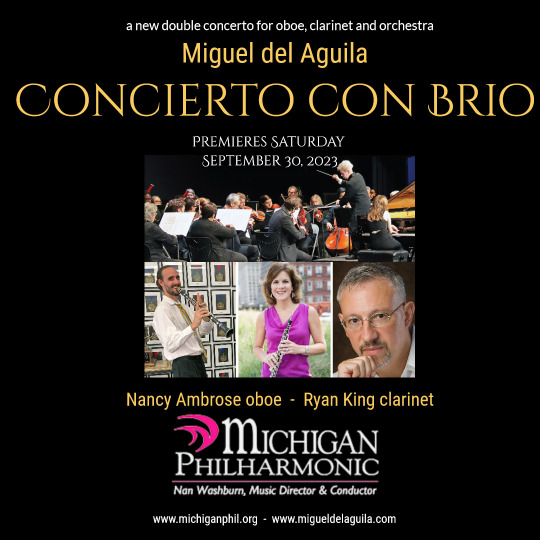
World premiere Saturday! The new double concerto for oboe clarinet and orchestra CONCIERTO CON BRIO by Miguel del Aguila. perform Nancy Ambrose oboe Ryan King clarinet Michigan Philharmonic Nan Washburn conductor
#premiere#2023#Concierto con Brio#for#oboe#clarinet#and orchestra#double concerto#Michigan Philharmonic#Nan Washburn#Nancy Ambrose#Ryan King#Detroit#American composers#music#woodwind concertos
0 notes
Text
Antonio Vivaldi (1678-1741) - Chamber Concerto for Flute, Violin, Bassoon and Continuo in F-Major, RV 100, III. Allegro. Performed by Adrian Chandler/La Serenissima on period instruments.
#antonio vivaldi#baroque#classical music#concerto#chamber concerto#period performance#period instruments#baroque music#flute#violin#bassoon#chamber music#vivaldi#woodwinds#strings#band
72 notes
·
View notes
Note
idk…patron of big city adventures and fall cooking and woodwind shenanigans
i can get behind this yeah
[ask meme]
#'woodwind shenanigans' makes me think specifically of last year when the first and second clarinet in orchestra would dick around on break#by playing the exposition to the mozart concerto together. but one of them on Bb and one of them on A#horrid. it's so fucking funny every time#sasha answers#ask meme#notyouraveragejulie#ty!#this ask game is getting a lot of milage
2 notes
·
View notes
Text
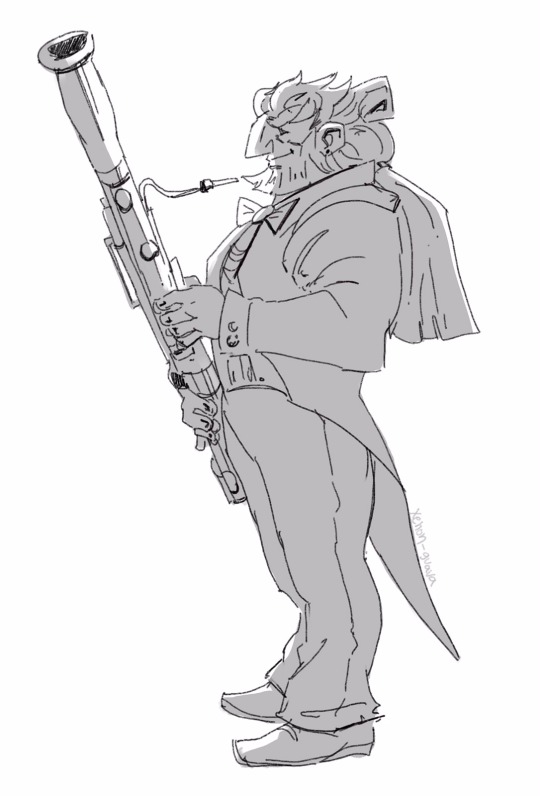
I don’t know how to explain this but Ganondorf would totally play bassoon in the orchestra
He gives me low-woodwind vibes
Bassoon is the definition of lawful evil
459 notes
·
View notes
Text
Today's translation #624
Go Yuri!!! Go official fanbook, Tominaga Keisuke comments
Piano concerto in B-minor: Allegro appasionato
The order was for 'music for an extreme program, that lets Yurio show off his high level technique to the maximum, and makes him dance as if he was crazy, a heart-braking program that makes use of his technique, physical strength and physical characteristics to the full'. That's why we decide to compose a difficult to perform piano concerto, that features violent changes in tempo and tone. It was an amazing performance conducted by Matsushiba-kun with elegant piano performed by Jitsukawa Kaoru and Ensemble FOVE' strings, brass instruments, woodwind instruments, and percussion.
(+ Matsushiba Taku) It's a piano concert in Russian romanticism style. B-minor is often avoided in classical music, but because Victor's Aria ~Stammi vicino~ is in B-major, I used it for the contrast between the two. In the show, we hear a few variations of this concert, a fuga for example, as background music. The beautiful and excellent performance of Jitsukawa Kaoru, a pianist highly praised both in Japan and abroad, and clarinet solo performed by Istvan Kohan are absolutely amazing. The expression 'allegro appasionato', that is a part of the title, is a musical term and it's used as a so called tempo marking.
26 notes
·
View notes
Photo

Richard Strauss
Richard Strauss (1864-1949) was a German conductor and composer of both innovative late-Romantic and Modernist music. He is best known for his symphonic poems and operas like Salome and Elektra, both of which caused a sensation. Strauss gained a whole new generation of admirers when his Also sprach Zarathustra was used in the 1968 film 2001: A Space Odyssey.
Early Life
Richard Strauss was born in Munich, Germany, on 11 June 1864. Richard's father Franz-Joseph was the principal horn player in the court orchestra of Munich, and his mother, Josephine Pschorr, was from a Munich family which owned a successful brewery business (the Pschorr brand still exists today). Richard inherited his father's musical talent and more, since by the age of four he could play the piano and by the age of eight the violin, too. He composed from age six. With his mother's money and father's connections in the music business, Richard was soon able to publish some of his own compositions, which included songs, sonatas, and symphonies. Richard, at the same time as developing his musicianship, studied philosophy and the history of art at the University of Munich. By his early 20s, he was already demonstrating "the paradoxical mixture of skilful economy and provocative lavishness that became the hallmark of his later style" (Sadie, 299).
Later, as a conductor, Strauss was not a particular fan of woodwind instruments, he once said, "If you can hear them at all, they are too strong" (Wade-Matthews, 142). In contrast, as a composer, he used them often, starting with his first major work the Serenade for wind instruments. Initially extravagant on the podium, Strauss' mature conducting style was particular, especially regarding his own compositions when the "critics could not get over the flamboyance of the music contrasted with the restraint of his gestures" (Schonberg, 486).
In the early 1880s, Strauss wrote his Suite in B flat, First Horn Concerto, a cello sonata, and a number of songs. His Second Symphony was given its premiere in New York. In 1885, the composer secured the position of assistant to the famed conductor Hans von Bülow (1830-1894). The position took Strauss to Meiningen in central Germany, and it turned out to be a great one for the young composer, since within a month von Bülow stepped back and Strauss became the main conductor of the well-respected Meiningen orchestra.
Continue reading...
19 notes
·
View notes
Text
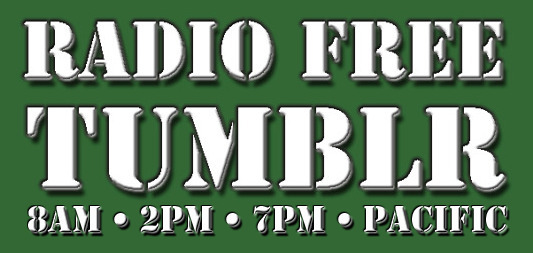
Thursday, 11-28-24, 8am Pacific
'Mornin' everyone who's up cooking and baking and everyone who's not! Mr. Baggins here, back with Morning Coffee Music, selections to get us in gear and in good cheer. I'm still waiting for my carafe of French Roast to finish its drip, but let's dive right into this morning's Bach to get things moving, shall we? Here are Preludes and Fugues Nos. 19, 20 and 21 from Book 1 of The Well-Tempered Clavier. Our harpsichordist for this six-record set is Malcolm Hamilton. From a 1964 release on Everest Records.
youtube
youtube
youtube
Ah, much better! Let's move up the Timeline just a touch and hear Haydn's Piano (or Harpsichord) Concerto No. 1 in D Major. We've heard Landowska play this, and I thought it might be nice to contrast it with a version with a modern piano, played by Alicia de Larrocha. From a London recording made in 1979.
youtube
Staying with Haydn for a moment, let's hear Horowitz play his Piano Sonata Hob. XVI:52 No. 62 in E flat major, recorded in 1932...still considered a reference recording!
youtube
I thought this would be a good day for a little Berlioz. Let's hear his Symphonie Fantastique, performed on a magnificent RCA recording by Charles Munch and the Boston Symphony, from 1954.
youtube
Now let's hear Our Favorite Hoser, Glenn Gould, in repetoire normally not associated with him: BRAHMS! This is the recording he made August 20, 1957 in Montréal, with The Montreal String Quartet, performing Brahms' Piano Quintet in F-minor, Op. 34.
youtube
We turn from Brahms to Chopin now, his Twelve Etudes, Op. 25, performed by our Brazilian pianista, Guiomar Novaes.
youtube
I do tend to lean more heavily toward piano/keyboard works, just because it is my native instrument. I'm also fascinated by the Oboe, and the woodwinds in general, as well as string orchestra works. There is something about the strings alone that is so unique. They don't NEED other instruments to say certain things. Such is the case with Dvorak's String Serenade, Op. 22. This album will always be in easy reach during Coffee Music, as it's just so perfect for it. Here is Marriner and the Academy from 1981. Pour a fresh cup and enjoy.
youtube
There are two times a year I tend to pull out Carl Orff's Carmina Burana to give it an airing, and those would be Spring and Fall. Here with this year's "Fall Emergence", as it were, is Seiji Ozawa, The Berlin Philharmonic, Edita Gruberova--soprano, Thomas Hampson--baritone, John Aler--tenor, and a MASSIVE combined choir made up of Shinyukai Choir, Knabenchor des Staats-und-Domchores Berlin, from 1988, on Philips...there just isn't a better, more impressive performance or recording of this piece out there. Enjoy!
youtube
And with that splendiferous piece to send us on our way, our Morning Coffee Music comes to a close for this Thursday. Oh, and yeah...gobble gobble. This is Mr. Baggins signing off for now, I'll return at 2pm Pacific with your Afternoon Stack of Classic Wax!
Until then, be kind, babies, be kind.
Baggins out.

5 notes
·
View notes
Text
𝐦𝐢𝐬𝐭𝐲 - yang jeongin

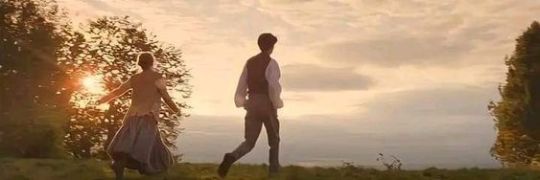

pairing: yang jeongin x reader (bewitched series pt. 6)
genre: fluff, comfort, slice of life, based off "misty" by laufey (original song by johnny mathis)
wc: 0.7k
warnings: (not proofread), established relationship, language, y/n is an absolute HOPELESS ROMANTIC, just tooth-rotting fluff

you were quite content spending the rest of a rainy day like this, snuggled into your boyfriend's side, wearing one of his shirts, as his thumb languidly slid back-and-forth soothingly across your shoulder. you leaned into his touch, sighing contentedly. your cheek rested against his chest.
"you're so pretty, innie." you mumbled, looking up at him with big, adoring eyes. jeongin laughed, kissing your cheek.
"why, thank you. so are you." he replied. your eyelids fluttered shut at the immense comfort of the rise-and-fall of his chest.
it was silly, looking at it now, that you were so goddamn infatuated with your boyfriend. there was just something about him that made you want to dig a hole inside him and live there permanently. this sensation was so new, and so strong, you felt utterly helpless, as if you were lost at sea. sometimes, it was just too tough to tread water.
but the clouds were pushed away from their spot covering the sun as a strong hand reached into the depths of the deep to pull you out and dry you off, and that hand belonged to yang jeongin.
with a kind, loving smile you were pulled ashore. he was the breath of oxygen filling your lungs, the fluffy towel wrapped around your shoulders, and the brightness of the summer sun itself.
you loved him to fucking pieces.
when you'd walk around the city, examining little shops and markets as their owners opened up, smells of espresso and fresh books wafting across streets, jeongin's hand would ever so inconspicuously brush against yours. this would continue until his big hand sat connected to yours, fingers intertwined and palms touching. when this happened, you felt as if you were absolutely going to pass away. all of your overflowing happiness had been condensed into a single cloud, floating gaily in the vibrant blue sky.
you just felt...misty, being around him. this feeling of intense doting that grew larger and larger and larger with every passing day was something of great interest to you. what was it about him that had you absolutely falling over yourself? was it his air of attractiveness and genuine warmth, was it his personality? it was probably both combined, actually.
your cheeks began to warm up significantly as you thought about this, and you sat up.
"i'm gonna go grocery shopping." you stammered, pulling on your jacket. as you went to run out the door, hiding your face in your hands, jeongin grabbed your wrist.
"are you really? it's pouring rain, baby." he laughed gently, grabbing an umbrella. "i'll come with you. don't want you to catch a cold now, do we? that wouldn't be good. i wouldn't be home a lot to take care of you, and i'd honestly be really worried. deal?" as he stared at you, concern and devotion in his brown eyes, it was like a symphony had began its most famous piece. thousands of violins played a melodious concerto and the brass and woodwinds backed up the beautiful song as it ended dramatically and beautifully in a lovely crescendo of sorts. just by hearing his voice, your feet were already lifting off the ground. it was simply lovely to be in his life, hell - even in the same timeline as him.
sometimes you feared you'd wake up again and see this all gone. you'd be alone and confused all over again, quiet tears streaming down your cheeks. was he just being nice to you? was he leading you on? was this pity? and then, in the very tip of your heart's apex was some burning desire for him to do this, and then admit that you were all he wanted. you were lost in this never-ending maze, and if jeongin was finding the way out, then that was the direction you would head towards, forever and ever.
lost in the wonderland that he'd created, sometimes feeling more disoriented than usual, he was the golden road leading you to your home (him). if you couldn't tell anything apart, he was the soft voice in your ear explaining everything to you in specific detail.
oh, you were way too in love with yang jeongin.

@evermourning, ©2023. all rights reserved.

#ren writes!! <3#evermourning#skz#stray kids#stray kids x reader#skz x reader#stray kids imagine#skz imagines#yang jeongin#jeongin skz#i.n skz#i.n stray kids#jeongin x reader#yang jeongin x reader#i.n x reader#bewitched set...entry vi
38 notes
·
View notes
Note
hi sam!! kind of a different request, but would you list as many of your favorite orchestral pieces as you can? association with turtles v welcome but also optional! i have trouble doing my coursework because i can't listen to anything in the background while doing it (shows, music with lyrics), but i listened to scheherazade because of you and really loved it, plus got some work done to boot!! i'm not sure where to start in looking for more music like that so i thought i'd ask you. :)
oohhhh what a FUN ask, thank you so much!! i promise i am going to TRY to be REASONABLE with how much i talk about this. if i really did mention "as many as i could" i think i'd find out if tumblr has a character limit in text posts, hahaha!
so my favorite symphony of ALL TIME is symphony 9 by dvorak. absolute must-listen. my favorite moment of the entire piece (which you HAVE to listen to the entire thing to get REALLY feral about) is the last huge chord progression in the fourth movement that takes the db major brass chords from the second movement and puts it to the BOMBASTIC TYMPANI EB MINOR EXTRAVAGANZA from the first movement and makes me want to CHEW THROUGH BEDROCK, RAHHH
aside from that, here are a few that i love a lot and totes recommend:
all of scheherezade is, of course, absolutely stunning. it's one of my favorite pieces of all time. if you haven't listened to the other movements, i highly recommend! in this same vein is you liked that are pieces like the stepps by borodin, the polovstian dances (also borodin), marche slav by tchaikovsky, and to some extent saint-saens piano concerto no. 5 has some similar themes, particularly in the absolutely DELICIOUS second movement. it's called "orientalism" and while the, uh, intent has a history of. to say generously. problematic undertones. the pieces themselves are lovely.
russian easter overture by rimsky korsakov. i played this one in high school and man. it's just so FUN and PRETTY.
symphonie fantastique by hector berlioz. it's the story of this dude having a really bad acid trip. no i'm not kidding. also the fifth movement has the dies irie in my favorite iteration ever. eat your heart out, mozart.
...actually just literally anything by tchaikovsky. gun to my head, i'd say he's my favorite classical composer. i'm partial to his ballet work because that's what i played a lot of personally, but his overtures and concertos are quite fun. his romeo and juliet overture is extremely famous (though i personally vastly prefer the opening part over the latter, more famous part). every violinist you ever meet will be traumatized by him, though. so do be careful.
speaking of concertos: my favorite (ugh. i'm a traitor) is probably the barber violin concerto. it just has this. cinematic vibe to it that makes me think of something magical.
(....though the elgar cello concerto and the grieg piano concerto may have something to say about this.)
the planets suite by holst is very fun. you've probably heard mars, and you may recall the romance theme from jupiter if you've seen the movie braveheart. it's one of those mainstream pieces most people have heard. my particular favorite movement is uranus. it's so bouncy and fun!!! classical headbanger music here
beethoven is quite fun to listen to. for his orchestral work, i'm partial to symphony no. 5 since that was the first one i played and the drama of it is enthralling. (yes. i think it's better than nine. sue me.). that said, between you and me, i like the egmont overture better than his symphonies. that low open c on the viola is just so god damned juicy—[door bangs open] OH NO. IT'S THE PRETENTIOUS POLICE. THEY FOUND ME
i'll stop there. these are a few symphonic pieces, since you asked for those specifically. i also really love chamber music (which is just the strings section, sans the woodwinds/brass/percussion/etc), but i find those amazing to listen to as well! anywho i hope you enjoy some slash all of these and good luck with your studies!!
#ask tag#i think this was reasonable for a sampling without going too overboard!#i'm the same about not being able to listen to music with lyrics. but i also can't listen to anything i've played#otherwise i start thinking about bowings and whatnot lmfaoooo
18 notes
·
View notes
Note
I just came across your analyses of all the 5sos albums and can I just say: chefs kiss. amazing. from the way you approach them both musically and lyrically (are you a musician? you have a very good ear) to being able to tell who is singing which part of the harmony (when there’s more than 2 singing at once I have No Idea, and even when there’s just 2 I’m still a little hit and miss). so grateful you exist and did them!!! not only for my enjoyment purposes but also because of my crazy projects I’m about to tell you about just in case you’re interested
anyway, it started with the RAH version of teeth. I’m a classically trained violist, I’ve played in many orchestras, I looked and asked everywhere I could think of just to lay my hands on something like the score so I could maybe pull some musician friends together and play it. No avail. Then, sleep deprived and slightly manic and very unmotivated in the middle of writing my honours thesis I must’ve played that bass riff when messing around on my viola and was like ‘this isn’t even hard let me just open musescore’ and decided Luke’s voice best fit the cello and calum the viola and six hours later it was a whole orchestral piece with the riffs passing around the upper strings like the RAH version and also woodwind and brass instruments somehow and then the bass riff led me straight into thin white lies which quickly morphed into NITSW (and can I just say that bridge is the best thing ever when played by strings) and I was like, this is telling a story. That became the first movement of the concerto.
second movement had to start with the flutes playing the piano intro of lover of mine, then I borrowed ghost of you from youngblood and threw in lonely heart, all the ones in vaguely 3’s as far as timing goes went in, all satisfactorily longing (if mvmt 1 is Relationship Angst) ending on a reprise of ghost of you chorus a semitone up (I’m not even sure anymore tbh, it’s def less cohesive but pretty I think) and I tried to copy its RAH intro as an outro. By then I realised I wanted to make the third movement about self discovery that ended on red desert because the album is just SO SAD and it deserved a happy ending and I wanted to try fit as many songs from the album in as I could (no shame and kill my time didn’t fit thematically unfortunately and easier should’ve been in movement 1 but sonically it just didn’t go, at least not yet I’m open to attempting to incorporate any of those songs) so started with old me. I realised I could overlay it with best years. Weird choice I know but the chords and melody worked well enough (and I still don’t think best years has been brought to justice ngl). Then I overlaid wildflower with high which is surprisingly a combination that I love, and it worked music wise and I thought they offset each other alright?? I’m still not quite sure where I’m going with it yet. but then comes red desert and I did the RAH intro and the whole song with harmonies (does get repetitive and idk what to do with that yet) and it’s like. yay, I gave CALM a happy ending.
I guess what I’m asking is I want to do more of these for more of their albums or combination of them (like they’re genuinely so fascinating from a musical and storytelling lens I can’t get enough) and I’ve got some ideas but I want to hear if you have anything you can just hear coming after each other. like complete mess and red line or smth?? even moodswings and space between a rock and a hard place?? idk. just ideas. throw them all at me. I’ll do it and dedicate it to you
Okay, first, no, not a musician, it's just that my dad was a dj, so i grew up around a lot of sound equipment because he's very particular about sound quality and that totally developed my ear for that type of stuff and my interest for music is that much more intense because of it (i did teach myself how to play the guitar and i do sing, but, like, i don't have any real training) and I really appreciate you coming here to say these, because i have a lot of fun writing those. Also I saw your tags, don't know if you ever figured it out but the milf anthem is mrs all american lol
Second, I'm desperate to hear what you did with calm, from the description alone it feels like something impressive, I'm very interested to see how you overlayed high and wildflower because i can see it, but i can't really imagine how that would actually work sokaosksokas
And third, I actually have quite a few smaller combos i like to push together (i went through a mashup phase when i was learning how to play 5sos songs lol) but i usually go from lyrics and adjust the guitar to fit my voice, i have no idea how that could work for you, but one i always do is vapor -> lie to me -> why wont you love me -> bad omens (it used to be high at the end, but then they dropped bad omens and i liked the way that narratively bad omens closed the loop, you end up trapped in the relationship you know it's not working I like that a lot for this combo), i have a few weirder ones, that are mostly the ones that i never fully managed to make it work but i think they could, like moodswings into bleach, story of another us into close as strangers, i know you saw my post about rearranging 5sos5 to tell a story and for some reason i think you can overlay caramel and bad omens, and red line and you don't go to parties (this one i admitedlly don't really know, but i think the red line riff with the ydgtp riff could be something, just a feeling lol), there's the rhythm section mashup, tomorrow never dies -> babylon -> tears, that I think you can make something with the bass in all of them, for some reason vapor and me myself and i, talk fast -> not in the same way -> blender -> kill my time, this one i think its cool because of the 80s pop of the melodies and the progression of the story with the lyrics, lover of mine -> best years -> older -> ghost of you, again you have the narrative and i think the piano can work all of there to make this tragic love song. And this is everything i can think of right now, but i will probably think of more as soon as i hit post tho soaskookasas
But seriously, this sounds really cool, please let me know how it progresses <3
4 notes
·
View notes
Text
The Story of The Oboe Instruments Evolution
Are you a young apprentice looking forward to learning the oboe? Wow! That's great! Let's understand the woodwind in the first place. It is a truly captivating instrument. It has a distinctive reedy timbre and expressive range to boast about. It is one of the reasons behind its magic of holding audiences' attention for centuries. Fascinating! Right? Do you want to know its journey of evolution? Read on!
The Roots in the Renaissance Era
The oboe's journey begins in the strident Renaissance era. It came from a family of double-reed musical instruments called shawms. These early tools were characterized by their loud and piercing sound. However, as time progressed, instrument makers aimed to refine the shawm by softening its sound and enhancing its intonation. This led to the development of the hautbois, a more sophisticated instrument with a narrower bore and a more delicate sound. The hautbois were capable of producing a wider range of dynamics and nuances. These elements made them suitable for both ensemble and solo playing. With the shift in the musical landscape, the oboe also evolved with time.
The Brilliance in the Baroque Period
The Baroque era was a golden age for this woodwind. It underwent a notable transformation in both designs and musical roles it played. How so? Continue reading! Renowned musical instrument makers, including Hotteterre and Stanesby, introduced keywork and other innovations that make the gear more versatile and expressive. Its distinctive timbre and agility caught the ear of composers. Later, they began exploring its potential in various musical contexts. So, what kind of music were they writing for the oboe? Well! During the Baroque period, the woodwind was frequently used to provide melodic lines and counterpoints. It covered both orchestral and chamber music. It also took center stage in concertos, showcasing its virtuosic powers.
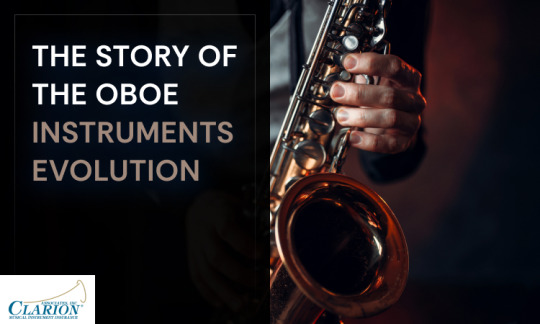
The Clarity in the Classical Time
The Classical era brought about additional refinements and advances to the oboe's design and playing technique. Eminent instrument makers, such as Töpfer and Triebert, continued to do a lot. It included improvement to the keywork, making the instrument even more responsive and easier to play. The role of the woodwind within the orchestra also evolved. Composers like Mozart and Haydn started using it to create a more balanced and refined sound.
Moreover, in Classical music, the oboe often served as a melodic instrument. It provided lyrical lines and expressive solos. It also added color and texture to orchestral works, especially within the wind sections. So, now that you are planning to learn the instrument, always remember to secure it with a suitable Oboe Insurance policy.
The Expression in the Romantic Era
The Romantic era was a time of great innovation and experimentation in music, and the oboe was no exception. How did the gear evolve during this period? Now, you will learn that! Composers like Berlioz, Wagner, and Strauss pushed the boundaries of the gear's expressive capabilities. They demanded greater virtuosity and emotional depth from players. So, what kind of technical skills were required of Romantic-era oboists? Romantic players were expected to have a wide range of technical skills. These included rapid scales, elaborate ornamentation, and explicit dynamics. The oboe's capability to communicate a vast range of feelings, from tender lyricism to dramatic intensity, made it an indispensable part of the Romantic orchestra. Furthermore, the Romantic era also saw the development of the English horn. It was a larger and lower-pitched version. It added a darker and more mysterious hue to the orchestral palette.
Conclusion
The oboe's evolution from the Renaissance to the Romantic is all weaved around innovation, refinement, and artistic expression. From its humble beginnings as a loud instrument to its suave and expressive form, the woodwind is a wonderful musical thing. So, if you are planning to begin your voyage with versatile gear, make sure to get it covered with a comprehensive Oboe Insurance plan.
#oboe#oboe instrument#oboe insurance#music#insurance#musicians#insurance coverage#musical instruments#music insurance company
0 notes
Text
The Enchanting World of Woodwind Instruments
Woodwind musical instruments are like the unsung heroes of the music world. They are available in different shapes and sizes. Most importantly, each possesses a unique sound and personality. From the age-old flutes that our ancestors used to the stylish saxophones that jazz musicians love, woodwind musical gears have been captivating us for ages. Do you want to look at these amazing instruments and discover why they're so special? Let's read on!
The Unique Characteristics and Contributions of the Flute
The flute is often called the angel of the instrument world owing to its pure and heavenly sound. It is delicate and beautiful. All credit goes to the way air vibrates when you blow across the mouthpiece. Whether it is the peaceful tunes of Mozart or the amazing solos of James Galway, the flute has always been a favorite for both classical and modern music.
The Versatile Clarinet: A Master of Many Musical Styles
The clarinet is like a chameleon in a good way. It changes its sound effortlessly from soft and sweet to bright and bold as and when needed. It is one of the most versatile woodwind instruments. Whether it is the elegant solos in Mozart's Clarinet Concerto or the soulful improvisations of Benny Goodman, the clarinet has always been a crowd-pleaser, captivating audiences with its diverse musical styles. No wonder! If you own such a gear, woodwinds insurance becomes your priority.
The Expressive Power of the Oboe
The oboe is like the voice of the orchestra. With its piercing double-reed sound that can cut through any musical ensemble, it is an amazing tool. Its unique timbre, a bit bright and nasal, gives it the power to express a wide range of emotions, from delicate and lyrical to bold and dramatic. You can hear the oboe's expressive power in famous orchestral works like Mozart's "Eine Kleine Nachtmusik" and Stravinsky's "The Rite of Spring."
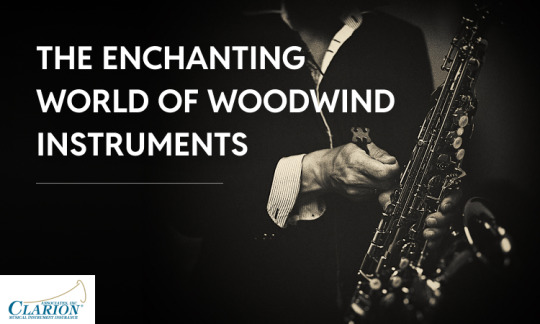
The Rich Timbre and Range of the Bassoon
The bassoon is the gentle giant of the woodwind family. Its deep and complex sound adds richness to any orchestra or chamber ensemble. Its range, from deep bass notes to surprisingly high registers, makes it versatile for both melody and harmony. The bassoon's unique sound, often humorous, makes it a popular choice for soloists and ensemble players.
The Jazzy Sounds of the Saxophone
The saxophone is a relatively new instrument, invented in the 19th century, but it's already become a symbol of jazz music. Its unique sound, produced by a single reed and conical shape, is perfect for improvisation and bluesy expression. From the legendary solos of Charlie Parker and John Coltrane to the smooth sounds of modern jazz, the saxophone continues to be a major player in both jazz and popular music.
The Challenges and Rewards of Learning a Woodwind Instrument
Learning to play a woodwind instrument is like a journey that requires dedication, patience, and lots of practice. It could be physically demanding, especially getting the right embouchure and finger technique. But the rewards are amazing! Imagine being able to create beautiful music, express yourself artistically, and connect with others through the universal language of music. It all starts with that first note on your woodwind instrument. The first step towards protecting it is getting a comprehensive woodwinds Insurance plan from a reputed insurance company.
Famous Woodwind Soloists and Their Impact on Music History
Throughout history, many amazing woodwind players have amazed audiences with their incredible talent and creativity. From the Baroque era with composers like Johann Sebastian Bach and Antonio Vivaldi to the Romantic era with Mozart and Beethoven, woodwind instruments have been a major part of shaping classical music. In the 20th century, jazz legends like Charlie Parker, John Coltrane, and Stan Getz completely changed the music world with their amazing saxophone solos.
#woodwinds insurance#woodwind instrument#music#musicians#insurance#musical instruments#music insurance company#insurance coverage
1 note
·
View note
Text
Georg Philipp Telemann (1681-1767) - Concerto for 3 Oboes, 3 Violins and Continuo in B-flat Major, TWV 44:43, I. Allegro. Performed by Reinhard Goebel/Musica Antiqua Köln on period instruments.
#georg philipp telemann#baroque#classical music#concerto#oboe#violin#period performance#period instruments#baroque music#concerto grosso#chamber concerto#chamber music#strings#woodwinds#telemann#band
38 notes
·
View notes
Note
Hello! Would you consider the Vaughan Williams Oboe concerto to be a basic ass piece to play for college auditions? I luv Vaughan Williams but I’m scared they’ll think I’m basic and lame
jeez, no, i think that's MORE than fine. if it's a really competitive program like at a conservatory or something maybe they'd want to hear something else but jeez the vaughan williams concerto was definitely beyond my skill level when i was auditioning for undergrad and i had no trouble getting in where i wanted to...of course i had my own circumstances re: where and how i auditioned so your mileage may vary but. gd no yeah i think the vaughan williams is MORE than suited for college auditions
#sasha answers#anon#oboeposting#the thing w oboe is that like... there's not a lot of concerti out there to choose from to begin with#compared to strings or piano anyway#especially if you're not pulling from very recent/contemporary compositions. which tend to be fiendishly technical#(and imo not that great to listen to...)#if we're talking cliched solo rep then nothing will beat the mozart concerto but even then i think that's a fine piece#for a college audition? like you're not winning a chair in a major orchestra or doing a concerto competition#the professors want to know that you can play. and jeez if you can play the vaughan williams then You Can Play#reiterating that idk if you're applying to like. curtis or juilliard or something. i certainly didn't and i have zero tips on that#but for your average music school i think thay should be fine#there's a lot of technical shit in that concerto any woodwind player worth their salt will recognize if they hear it#and honestly if you can make the vaughan williams sound good then 'getting in' is the least to stress about#anyway. this isn't musical theater i wouldn't worry about picking rep based on if it's 'cliche' or not#find out what the schools you're auditioning for want you to have prepared (in terms of like length and tempo/contrasting styles etc)#and go from there but honestly i don't think you ought to worry about something being 'overdone'#there's only so much solo rep out there for oboe y'know#good and classic solo rep anyway.
0 notes
Text
Mendelssohn - ‘Scottish Symphony’ 1829-42- where has this been all my life?! I could hear that tremolo which must be a Mendelssohn feature, which you can hear in the violin concerto. Boundaries pushed. Movements as one and coda at the end. I loved the texture of instruments and use of brass and woodwind. Reminded me of Beethoven.
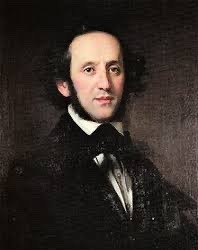
I also love Mendelssohn’s violin concerto in E minor (1838-1844) which I studied at A level- amazing piece.
1 note
·
View note
Text
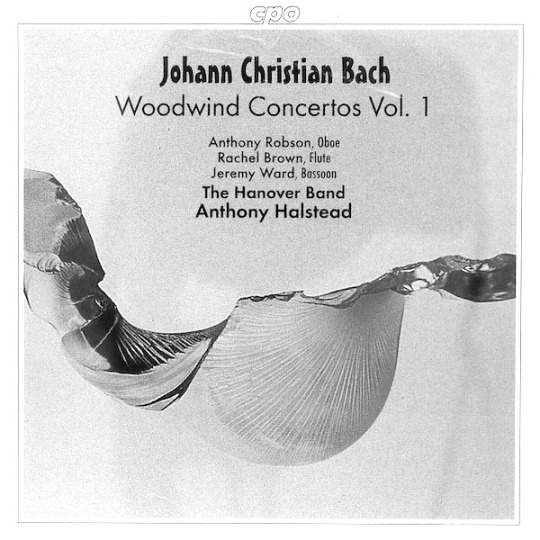
Playing
Johann Christian Bach WOODWIND CONCERTOS VOL. 1
Anthony Halstead Anthony Robson, Rachel Brown, Jeremy Ward The Hanover Band
Concerto For Oboe with String Orchestra and 2 Horns in F Major, CW C81
Concerto For Flute with String Orchestra and 2 Horns in D Major, CW C79
Concerto For Bassoon and Orchestra In E-flat Major, CW C82
0 notes